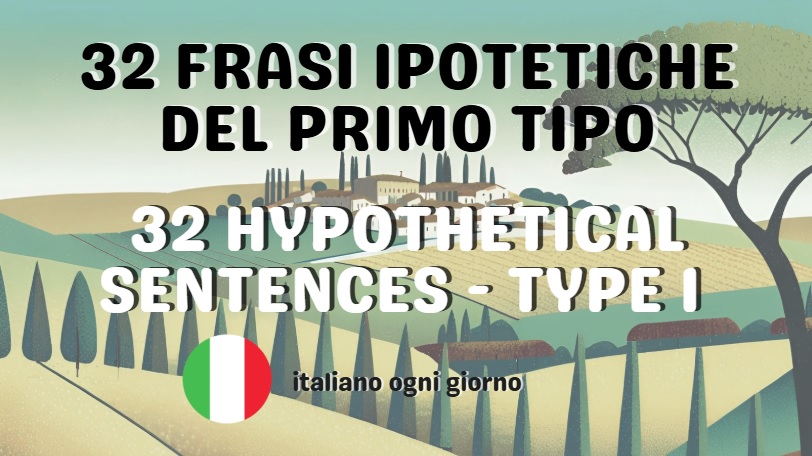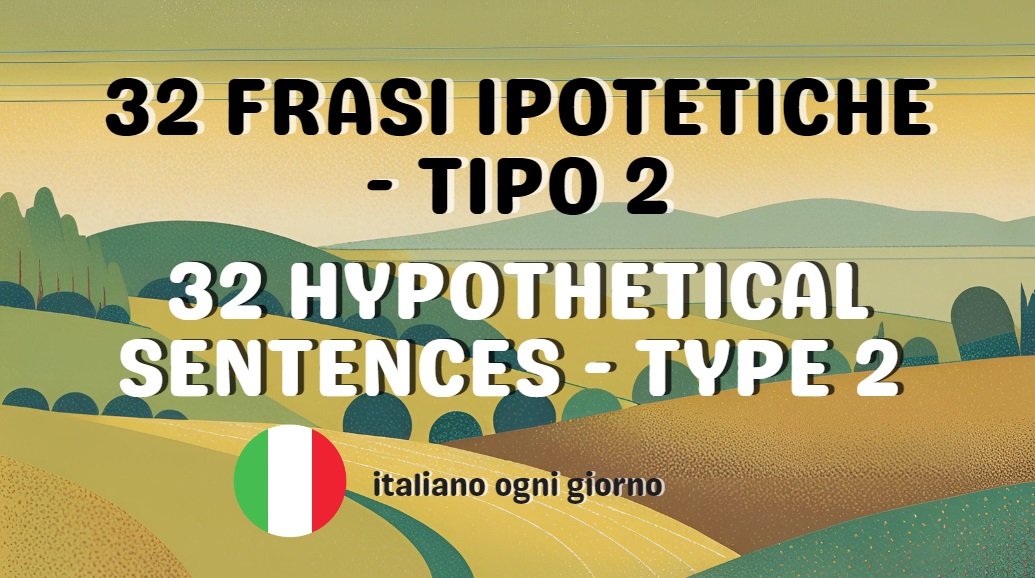(English follows)
Quante volte durante la giornata iniziamo una frase con la parolina “se” per esprimere una ipotesi, una possibiltà, una realtà, una impossibiltà? Tante!
Per esempio:
“Se mangi troppi dolci, ti viene il mal di stomaco.”
Questa è una frase ipotetica del primo tipo della realtà che si costruisce con il presente indicativo + il presente indicativo ed esprime una ipotesi presentata come un fatto reale o plausibile.
In tutto ci sono 5 modi per formare una frase ipotetica del primo tipo della realtà.
Qualche esempio:
1. se + indicativo presente + indicativo presente → se non mangi, hai fame;
2. se + indicativo presente + indicativo futuro → se partiamo tardi, perderemo il treno;
3. se + indicativo futuro + indicativo futuro → se verrai, ceneremo insieme.
4. se + indicativo passato + indicativo futuro → se hai portato il libro, lo leggerò.
5. se + indicativo presente + imperativo → se avete sete, bevete!
Ci sono tre tipi di frasi ipotetiche oltre a quelle miste, ma ricordare quali verbi usare in ciascun caso rischia di diventare un gioco mnemonico poco pratico. La strategia migliore è di ricordare il suono attraverso la ripetizione orale.
Nel video potrai ascotare e ripetere 32 frasi ipotetiche del primo tipo.
Più le ripeti, più diventerà naturale formularle senza pensarci, in quanto svilupperai una memoria orale. Ti consiglio di ripeterle spesso e di esercitarti a scriverne altre nei commenti.
Scarica il PDF della lezione / Download the PDF of the lesson:
English version
How many times during the day do we start a sentence with the little word “if” to express a hypothesis, a possibility, a reality, an impossibility? Many!
For example:
“Se mangi troppi dolci, ti viene il mal di stomaco.”
(“If you eat to many sweets, you’ll get a stomach ache)
This is a hypothetical sentence of the first type of reality constructed with the present indicative + the present indicative and expresses a hypothesis presented as a real or plausible fact.
In total there are 5 ways to form a hypothetical sentence of the first type of reality.
Some examples:
1. se + indicativo presente + indicativo presente → se non mangi, hai fame;
2. se + indicativo presente + indicativo futuro → se partiamo tardi, perderemo il treno;
3. se + indicativo futuro + indicativo futuro → se verrai, ceneremo insieme.
4. se + indicativo passato + indicativo futuro → se hai portato il libro, lo leggerò.
5. se + indicativo presente + imperativo → se avete sete, bevete!
There are three types of hypothetical sentences in addition to mixed ones. Since remembering which verbs to use in each case risks becoming an impractical mnemonic game, the best strategy is to remember the sound with oral repetition.
In the video you will be able to listen to and repeat 32 first-type hypothetical sentences.
The more you repeat them, the more natural it will become to formulate them without thinking, as you will develop an oral memory. I recommend that you repeat them often and practice writing some in the comments.
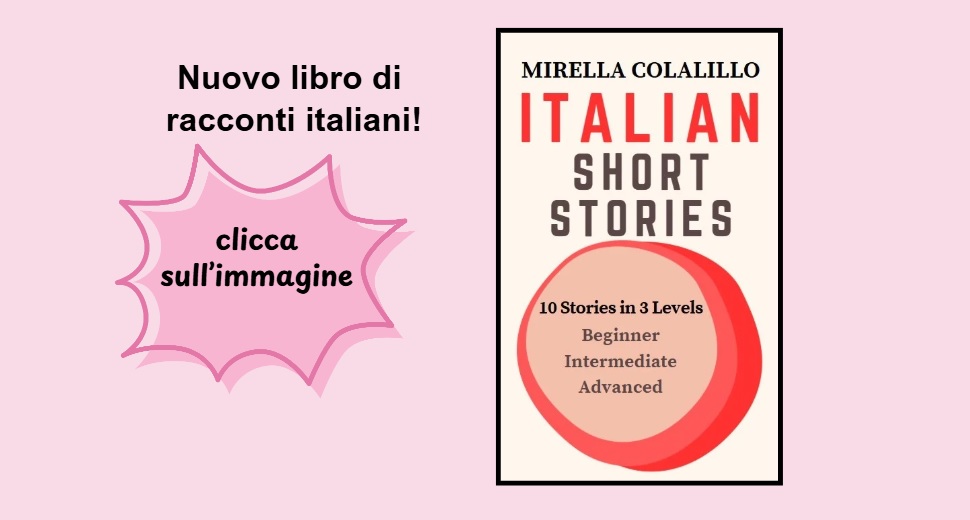
- La Pasqua nell’arte italiana

- Racconto italiano: La disdetta del frullato al cacao A2/B1

- Come si usa il gerundio

- Racconto italiano: La gatta sull’albero /A2

- Racconto italiano: Le scale al nuovo anno /B2

- 32 frasi ipotetiche del primo tipo in italiano
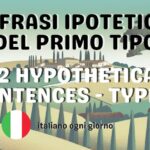
- Una rassegna: Cosa abbiamo studiato in italiano nel 2024?
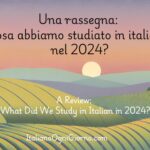
- Racconto italiano: Un giorno perfettamente imperfetto /A2

- Racconto italiano: Le scale al nuovo anno /A1


